Skin-Loving Benefits of Organic Ingredients in Makeup
flareAI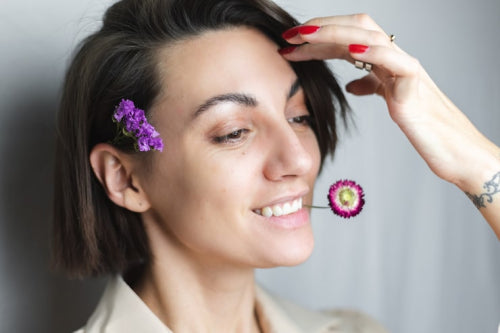
Quick Listen:
Imagine gliding through your morning ritual, applying a vibrant crimson lipstick that not only adorns your lips but also infuses them with lasting hydration, banishing the familiar sting and leaving behind a radiant, nourished finish. In an era where cosmetic choices frequently undermine skin vitality, the transformative power of organic ingredients in makeup is redefining beauty standards, evolving daily applications into genuine expressions of self-nurture. Delve into Discover the Skin-Loving Benefits of Organic Makeup Ingredients for Healthier Beauty, where we explore how these natural powerhouses are reshaping the industry for superior skin health and environmental harmony.
Many women feel trapped by makeup that hides flaws but risks irritation and hidden toxins. This daily choice weighs heavily, dimming confidence over time. Liht Organics invites you to embrace beauty differently. With up to 90% USDA-certified organic ingredients, our vegan, cruelty-free products deliver vibrant color and gentle care, letting you glow with confidence, knowing your skin is nurtured, not compromised. Shop Now!
Why Organic Makeup Matters
Stroll through a bustling pharmacy or swipe across your go-to e-commerce platform, and the messaging is inescapable: "clean," "natural," "organic." These aren't mere marketing ploys; they represent a seismic shift driven by a cohort weary of sacrificing pore health for picture-perfect coverage. The clean beauty uprising, which ignited around the early 2010s, has surged into everyday essentials, captivating Millennials and Gen Z demographics that champion products resonating with core principles like ecological responsibility, unyielding openness, and profound skin compassion.
Central to this evolution are innovators such as Liht Organics, pioneers in formulating powerhouse cosmetics boasting more than 80 percent clean organic components. Far from conventional blends, these creations are engineered to be innocuous enough for ingestion, all while tenderly revitalizing the underlying dermis. Manufactured in the USA and Singapore, Liht Organics exemplifies a worldwide perspective, merging stringent quality controls with forward-thinking procurement to yield cosmetics that excel in efficacy without concessions.
The appetite for such offerings is surging unabated. Patrons no longer merely acquire tubes of tint or pots of pigment; they commit to ceremonies pledging enduring luminosity over ephemeral illusions. This transcends transient fervor it's a societal recalibration, propelled by digital tastemakers dissecting formulations on TikTok and Instagram, where the hashtag #CleanBeauty garners millions of impressions each week, fostering vibrant dialogues on sustainable glamour.
In regions like the United Arab Emirates and Saudi Arabia, where opulent lifestyles intersect with rising wellness awareness, organic makeup resonates deeply, offering respite from arid climates that exacerbate dryness. Similarly, in humid havens such as Singapore and Malaysia, formulas that hydrate without heaviness are game-changers, aligning with local demands for lightweight, breathable beauty. Across the US and Australia, ethical sourcing appeals to eco-conscious crowds, while in India, affordable yet premium organic options bridge traditional Ayurvedic wisdom with modern minimalism.
Emerging Trends in Organic Makeup
As we navigate 2025, organic cosmetics have transcended niche corners to command catwalks and social scrolls alike. A paramount current? The ascent of non-toxic aesthetics, eschewing parabens, sulfates, and artificial scents in favor of botanical-driven elixirs that permit dermal respiration. Envision luminous, second-skin bases that amplify innate radiance rather than obscure it a motif mirrored in Milan Fashion Week's autumn showcases, featuring "clean glam" ensembles with mineral-infused smoky eyes, sidestepping synthetic eyeliners for purer palettes.
Openness is paramount. Discerning buyers insist on tracing their rouge from field to finish, spurring a renaissance in verifiable, proximate botanicals ethically farmed cacao yielding velvety textures, sustainably gleaned algae bestowing oceanic minerals. Sustainability, meanwhile, is imperative. From reusable palettes to biodegradable casings, the paradigm favors pared-down compositions that deliver robust results with minimal footprint, reducing waste in an industry long criticized for excess.
In Asia and the Middle East, where atmospheric moisture rigorously vets every emulsion, Korean beauty synergies fuse with organic paradigms ethereal stains laced with matcha for that ethereal, veil-like allure. Down under in Australia and spanning India's vibrant bazaars, plant-based and animal-free endorsements are baseline, catalyzing advances in iridescent sheens that evoke sun-kissed vibrancy sans residue. These regional nuances underscore a unified trajectory: beauty that performs globally while honoring local climates and cultures.
Moreover, the integration of technology amplifies this momentum. Augmented reality tools now simulate shade matches with precision, while blockchain ensures ingredient provenance, building bridges over trust gaps that once deterred skeptics unclear on formulations or authenticity.
Real-World Applications and Examples of Organic Ingredients
Time to roll up sleeves and examine the tangible. Organic cosmetics excel when their elements multitask imparting hue while healing in a single gesture. Consider aloe vera, nature's balm for arid canvases, brimming with vitamins and polypeptides that quench profoundly and pacify flare-ups, starring in Liht Organic's featherweight foundations that efface flaws sans obstruction.
Shea butter follows, drawn from West African shea nuts, a titan for sealing hydration and tempering irritation. Within a silken cover, it elevates from concealment to fortification, suiting extended exposures in Singapore's steamy climes or Dubai's parching gusts. Coconut oil emerges as the versatile virtuoso antimicrobial, replete with polyphenols, it endows balms with island lustre that combats fissures alongside faint coloration.
Jojoba oil, resembling sebum's signature, regulates secretion, averting eruptions beneath powder veils. Liht Organics interlards these treasures across their arsenal, guaranteeing each item not only dazzles visually but indulges tactilely. Their flagship tinted hydrator, ethically procured, affirms opulence can coexist with conscience, countering qualms about ingredient opacity by spotlighting sourcing stories.
Ready to experiment? Encounter Liht Organics amid curated selections at Faces UAE, a hub for pristine picks attuned to Gulf preferences. Or browse Gold Apple for seamless integration into luxury regimens, and explore Namshi's lifestyle lane for versatile organics suiting dynamic wardrobes.
These applications extend beyond aesthetics; they address core hesitations around comprehension and credibility. By demystifying components detailing how aloe's polysaccharides soothe versus vague "natural" claims brands like Liht foster familiarity, transforming doubt into devotion.
Key Challenges in Organic Makeup
Yet, the path isn't strewn with petals alone. Formulating organic cosmetics entails grappling with elemental caprices. Chiefly, delineating "organic" is labyrinthine norms diverge sharply from the USDA's rigorous badges in America to the EU's layered validations, compelling enterprises to traverse regulatory thickets. Elevated expenses compound this; premium botanicals like shea eclipse lab-made mimics, inflating tags that may alienate frugal shoppers in Malaysia or India.
Durability presents a further snag. Devoid of synthetic stabilizers, these brews degrade swifter, necessitating hermetic enclosures and on-demand production that tangle transnational logistics from Arabian groves to Singaporean studios. Compounding this is the alchemical puzzle: harmonizing flora into enduring, vivid mixes without efficacy erosion. A single oversight, and that ingestible rouge curdles akin to spoiled salad dressing.
These impediments, however, catalyze creativity. Innovators harness biotechnology for resilient naturals, illustrating how adversity often spawns evolution. In trust-scarce terrains, exhaustive disclosures lab assays, farm audits bridge informational voids, assuaging fears of misrepresentation.
Navigating these requires strategic acumen: partnering with certifiers for uniform benchmarks, optimizing chains for resilience, and educating via social channels like Instagram reels unpacking "safe enough to eat" myths, thereby erecting bulwarks against skepticism.
Opportunities and Business Impact
Invert the lens, and these barriers beget gateways. The organic aesthetics surge is far from marginal skincare is rapidly expanding as consumers embrace integrated wellness. In the U.S., the organic skincare movement is gaining momentum, increasingly influencing cosmetics as well. This shift is further accelerated by artificial intelligence, which now personalizes shades and formulations to match individual skin profiles and evolving needs.
For Liht Organics, this heralds allegiance treasure. Championing blends exceeding 80 percent organic that succor over scour, they cultivate confidence amid dubious waters tackling uncertainties forthrightly via lucid manifests that elucidate each essence. It's premier distinction: eclipsing throngs from Sydney boulevards to Riyadh souks, where green guardians gravitate to authentic advocates.
Expansion summons universally. Ecological imperatives aren't add-ons; they're propulsion, with European mandates enforcing verdancy and Korean exports magnifying Asian yearnings. Entities embracing this? They transcend vending they sculpt collectives, morphing casual acquirers into apostles broadcasting unboxings on TikTok, amplifying reach organically.
This ripple extends to marketplaces: Platforms like The Green Collective in Singapore curate Liht's lineup for eco-elites, while regional e-tailers in the UAE and India democratize access, countering affordability objections with bundled intros that illuminate value.
The Future of Organic Makeup
"Organic transcends flawlessness; it's progression," affirms a foremost skin specialist, illuminating how such recipes evade artificial assaults on fragile membranes, nurturing robust visages longitudinally. A fellow authority concurs: pivoting to organics liberates physique and biosphere from abrasive agents, a dual triumph that gratifies sensorially and substantively. Doubters cite innate irritants, yet prevailing wisdom inclines toward milder, intentional allure.
Gazing forward, anticipate chimeric fusions cultured flora converging with foraged rarities and virtual reality auditions forecasting dermal dialogues pre-purchase. For switch-contemplators, commence modestly: exchange a singular mainstay, such as a restorative lip hue, and chronicle cutaneous replies. Pursue the luminescence.
Ultimately, organic cosmetics embody not fad but subdued insurgency against yielding. Liht Organics beckons participation, proffering palettes that pigment existence whilst embracing epidermis. Venture to their portal, claim a tone, and permit your mirror's gaze to express gratitude. For further ignition, tune into Instagram and TikTok's effervescence realms where allure encounters genuineness, one caress at a time.
Frequently Asked Questions
What makes organic makeup ingredients better for your skin than conventional makeup?
Organic makeup ingredients like aloe vera, shea butter, and jojoba oil provide dual benefits by adding color while actively nourishing and healing your skin. Unlike conventional makeup that can contain harsh parabens, sulfates, and synthetic fragrances, organic formulations allow your skin to breathe and often contain vitamins, antioxidants, and natural moisturizers. These ingredients work to hydrate, soothe irritation, and support long-term skin health rather than simply covering imperfections.
Are organic makeup products really safe enough to eat, and what does this mean for consumers?
Some premium organic makeup brands, like those with over 80% clean organic ingredients, are formulated to be so pure they're technically safe for ingestion, though this doesn't mean they're intended as food. This "ingestible" standard indicates extremely high purity levels and the absence of toxic chemicals that could harm your body if accidentally consumed. For consumers, this translates to makeup that's gentle enough for sensitive skin, won't cause irritation from synthetic additives, and aligns with clean beauty standards.
How do I know if organic makeup will work in different climates and weather conditions?
Organic makeup is actually well-suited for various climates because natural ingredients adapt to environmental conditions. In humid areas like Singapore and Malaysia, organic formulas with ingredients like coconut oil provide lightweight hydration without feeling heavy, while in arid climates like the UAE and Saudi Arabia, ingredients like shea butter and aloe vera offer deep moisturization to combat dryness. The key is choosing organic makeup with ingredients that complement your local climate and skin's specific needs.
Disclaimer: The above helpful resources content contains personal opinions and experiences. The information provided is for general knowledge and does not constitute professional advice.
You may also be interested in: Organic Makeup That Heals As It Conceals – Liht Organics
Many women feel trapped by makeup that hides flaws but risks irritation and hidden toxins. This daily choice weighs heavily, dimming confidence over time. Liht Organics invites you to embrace beauty differently. With up to 90% USDA-certified organic ingredients, our vegan, cruelty-free products deliver vibrant color and gentle care, letting you glow with confidence, knowing your skin is nurtured, not compromised. Shop Now!
Powered by flareAI.co
شاركي
You May Also Like
-

Discovering Self-Love Through Clean Beauty: A Guide to Nurturing Your Inner and Outer Self
In the journey of self-love, every action, thought, and choice we make towards ourselves can be a powerful affirmatio...
-

The Science Behind Organic Makeup and Pregnancy: A Gentle Choice for Moms-to-Be
wp:paragraph Pregnancy is a wonderful and exciting journey that comes with added responsibilities of ensuring the ...
-
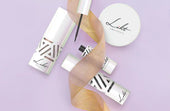
Liht Organics Black Friday: Enhance Your Beauty Routine with Vegan, Organic, and Natural Essentials!
As the holiday season approaches, there’s a sparkle in the air, and we at Liht Organics are thrilled to add a touch o...
-

Organic Makeup That Heals As It Conceals
Liht Organics Empowers Women With Only The Best For Their Beauty NeedsLiht Organics combines the best of both worlds:...
-
![[FEATURE] Liht Organics to debut at TFWA Asia Pacific show](//lihtorganics.com/cdn/shop/articles/1_1.png?v=1759328400&width=170)
[FEATURE] Liht Organics to debut at TFWA Asia Pacific show
‘Organic makeup that’s safe enough to eat’ — Liht Organics to debut at TFWA Asia Pacific show by Hannah Tan | 24 Apri...
-
![[FEATURE] The Singapore-based organic makeup brand is a first-time exhibitor at this year’s TFWA Asia Pacific Exhibition in Singapore in May 2025](//lihtorganics.com/cdn/shop/articles/2_1.png?v=1759328386&width=170)
[FEATURE] The Singapore-based organic makeup brand is a first-time exhibitor at this year’s TFWA Asia Pacific Exhibition in Singapore in May 2025
TFWA Asia Pacific preview: Liht Organics targets expansion in travel retail By DFNI Staff Writer The Singapore-bas...
-
![[FEATURE] Travel Retail Awards 2025 finalists - Best Make-up Product Color-Intense Liquid Lipstick – Liht Organics](//lihtorganics.com/cdn/shop/articles/4_e2f54f0f-fcd1-46e7-9990-fc9d29e35131.png?v=1759328382&width=170)
[FEATURE] Travel Retail Awards 2025 finalists - Best Make-up Product Color-Intense Liquid Lipstick – Liht Organics
Revealed: Travel Retail Awards 2025 finalists By Trbusiness Editor | Wednesday, 23 July 2025 15:21 TRBusiness is th...
-
![[FEATURE] Liht Organics targets expansion in travel retail](//lihtorganics.com/cdn/shop/articles/3_1.png?v=1759328346&width=170)
[FEATURE] Liht Organics targets expansion in travel retail
Organic makeup that’s safe enough to eat: Liht Organics targets expansion in travel retail By Laura Shirk Liht Organ...
-

[FEATURE] Gulf News: TikTok’s strawberry girl makeup trend: How to achieve that rosy glow inspired by Hailey Bieber
Berry, berry, strawberry, love strawberry, like BTS’s J-Hope, the band’s strawberry enthusiast once said. If only we ...
-

[FEATURE] Gulf Business Magazine : Liht-ing it up
Our founder, Nerissa Low was interviewed by Gulf Business, where she discussed her experience launching Liht, an orga...
-

[FEATURE] Daily Vanity: 11 local beauty brands owned by women – you’d be surprised how many of them started in their kitchens!
When we give a shout-out to homegrown beauty businesses, we aren’t just doing it for the sake of supporting local. Th...
-

[FEATURE] Entrepreneur ME : UAE-Based Liht Organics' Nerissa Low On Crafting An Organic Makeup Brand For The Skin-Conscious Consumer
As is the case with the origin stories of so many startups out there, Liht Organics came into being after its founder...
-

Mother, Baby & Child Editor’s Pick: Liht Organics Lights the Way
Excited to be the Mother, Baby & Child’s ‘Editors pick’ for their choice of Beauty brand.The article outlined the...
-

[FEATURE] EmiratesWoman - 8 Fabulous things to do in Dubai this weekend
by SARAH JOSEPHJANUARY 20, 2023Try the UAE’s first virtual reality makeup podium The popular VR-backed makeup exper...
-

Nerissa Low of Liht Organics On The Self-Care Routines & Practices Of Busy Entrepreneurs and Business Leaders
By Maria Angelova, CEO of Rebellious Intl.Date: 4 January, 2023Nerissa Low of Liht Organics On The Self-Care Routines...
-

Liht Organics: Meet the beauty brand that has caught the eye of the Royal Family of Bahrain
By Crystal Lee Digital Editor28 May 2021The world of clean beauty is, ironically, rather murky.That’s because the ter...
-

The latest luxury makeup and skincare drops, including serums, concealers, moisturisers and more
Allisa Noraini21 May, 2021It’s fine to splurge in the name of beauty. This new range of makeup and skincare drops are...
-

These SG Beauty Bosses Are Conquering The World Despite The Pandemic
First Singapore, then the US, China, Germany, Dubai, UK, South Korea, Malaysia, Hong Kong, Thailand, Australia… By...
-

Nerissa Low, Founder at Liht Organics
Written by Callum LaingPosted on December 26, 2020 10 min readNerissa Created Organic Makeup That Actually Improve...
-

Liht Organics – Makeup That Makes You
At Liht Organics, our mission is simple – to provide women (and men) with a safe experience when it comes to beauty s...
-

Why Should We Use Organic Makeup?
We cannot deny that cosmetics is one of our beauty essential item – it enhances our looks and conceals our flaws. Man...
-

Organic makeup and why your skin will love it: Liht Organics founder
By Jolene,July 27, 2020 |7 mins readOrganic make up in Singapore is a trend that is fast-catching on here as we becom...
-

[FEATURE] DC EDIT – Makeup & Confidence: Talking Self-love With Liht Organics’ Founder Nerissa Low
Makeup and confidence — the long, drawn-out fight that many of us have grappled with personally. I’m sure I’m not the...
-

[FEATURE] THE FEMALE CULTURE – I TRIED LIHT ORGANICS AND THIS IS HOW IT WENT
I’m a huge fan of makeup and I love testing out new products so I was pretty excited to get my hands on Liht Organics...
-

[FEATURE] SINGAPORE MOTHERHOOD – The Best Organic and Natural Skincare and Makeup for Pregnant and Breastfeeding Mums in Singapore
Pregnancy is a hormone-volatile period for women. One place where this makes itself seen and felt is on the skin. Som...
-

[FEATURE] AFTER CLINIC HOURS – 21 Back to Beauty Deals in Singapore (2020)
With spas and salons shuttered island wide for two months, I never thought I’d be this desperate for a good old’ Swed...
-

[FEATURE] KUL AL USRA MAGAZINE JUNE 2020
Choosing Pinks & Oranges this summer!Featured: Moisture Burst Lip Glaze in Pink Cupcake.
-
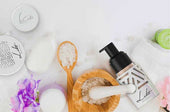
[FEATURE] Award-winning Organic Makeup Brand Liht Organics Gives Back to the Community & Environment During COVID-19
Singapore’s First Organic Makeup Brand with 100% Natural Makeup That Is Safe Enough to Eat Liht Organics promises org...
-

[FEATURE] COSMETICS DESIGN ASIA – COVID-19 ‘WAKE-UP CALL’: SINGAPORE’S LIHT ORGANICS SEES GLOBAL POTENTIAL AMID CLEAN BEAUTY CLAMOUR
Original article at: https://www.cosmeticsdesign-asia.com/Article/2020/06/26/Singapore-s-Liht-Organics-sees-globa...
-

[FEATURE] THE LIFESTYLE COLLECTIVE – BEAUTY SHOULD NEVER BE CRUEL
Date: June 24, 2020Author: Kristen Chen Liht (pronounced as light) Organics is a Singaporean organic makeup brand t...
-

[FEATURE] NÜYOU – 7 ONLINE PLATFORMS TO SHOP FOR CLEAN BEAUTY PRODUCTS
纯净美容(Clean Beauty)的美肤概念,再近几年来越来越受欢迎。随着消费者“爱自己”的美容意识逐步提升,对于用在脸上的所有物品、成分更为关注和讲究。以广义来讲,纯净美容主张使用“干净”成分和无毒配方,让肌肤的可能性损伤减到最小...
-

[FEATURE] COSMOPOLITAN MIDDLE EAST – 3 BENEFITS OF SWITCHING TO ORGANIC BEAUTY PRODUCTS THIS RAMADAN
By Cosmo – May 08, 2020Nerissa Low, founder of Liht Organics, shares the ultimate benefits of going organic this mont...
-

Nerissa Low of Liht Organics: “Seeing Light at the End of the Tunnel; 5 Reasons To Be Hopeful During this Corona Crisis”
Ely Weinschneider, Psy.D.May 8 · 9 min read …It shows us that everyone- whether we are rich or poor, regardless...
-

[FEATURE] AL MARA MAGAZINE APRIL 2020
-

[FEATURE] RetailME April 2020 – Liht Organics Stays Firm On Strengthening GCC Presence
-

[FEATURE] EMARAT AL YOUM NEWSPAPER – 27 MARCH 2020
English Translation:In spring and summer days, women love to have very light makeup in terms of color and texture, ...
-

[ARTICLE] WKND Magazine March 2020 – Know Your Organic Makeup
-

[FEATURE] AVIAMOST DUBAI – March/April 2020
English Translation:Lipstick with organic flowers. Thanks to the rich complex of natural ingredients, the lipstick...
-

[FEATURE] RUSSIAN EMIRATES (MAR/APR ISSUE)
Russian Emirates is a luxury lifestyle and fashion magazine covering information about the UAE, fashion, beauty, j...
-

[FEATURE] – KUL AL USRA MAGAZINE MARCH 2020
GET THE LOOK!
-

[FEATURE] IMAGES Retail ME – Liht Organics Announces GCC-Wide Expansion
Rupkatha Bhowmick Mar 10, 2020 The plan is to reach 75 Liht Organics retail touchpoints by June-July 2020 and touch...
-

[FEATURE] BABY & CHILD SPRING 2020 – NATURAL BEAUTIES
-

[FEATURE] AWQAT DUBAI – Liht Organics: The First Premium Organic Makeup Brand
ENGLISH TRANSLATION:Liht Organics – The First Premium Organic Makeup Brand Liht Organics, a premium organic beauty ...
-

[FEATURE] FRIDAY MAGAZINE – THE RETRO EYELINER LOOK
-

[FEATURE] MOTHER BABY & CHILD – VANITY ESSENTIALS – THE BEAUTY EDIT
-

[FEATURE] Masala! Magazine February/March 2020 Issue – Beauty Debut: Liht Organics
-

[Feature] – TimeOut Singapore – The Best Local Beauty and Skincare Brands In Singapore
For full article, click here.
-

[FEATURE] KUL AL USRA MAGAZINE – LIHT UP YOUR WORLD WITH LIHT ORGANICS
[ENGLISH TRANSLATION]Liht Up Your World With Liht OrganicsThe First Premium Organic Makeup Brand To Debut In The Mi...
-

[FEATURE] SINGAPORE TATLER – 9 Local Beauty Brands You Should Know Of
-

[FEATURE] nüyou August 2019 Issue – 15 Faces To Watch
-

[FEATURE] HONEYCOMBERS – Local Beauty Gurus: Singapore Beauty Brands You Need To Know About
-

[FEATURE] The Wellness Insider – Seeing The Liht With Founder Nerissa Low
-

[FEATURE] 联合早报 (LianHeZaoBao) – Women Entrepreneur Awards 2019 Coverage
-

[FEATURE] THE STRAITS TIMES Life – Clean beauty with a Singapore heart
-

Romantic Organic Makeup Looks for Valentine's Day: Tips, Tricks, and Product Picks
Valentine's Day is the perfect occasion to embrace the beauty of organic makeup. At Liht Organics, we believe in the ...
-
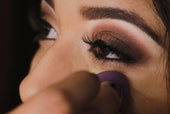
Enhance Your Eyes: A Guide to Eyeliner for Every Eye Shape with Liht Organics
Welcome to the Liht Organics blog, where we believe in celebrating the natural beauty of every eye shape. Today, we'r...
-
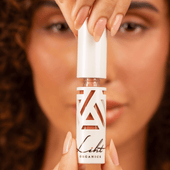
How to do makeup with only lipstick?
At Liht Organics, we believe in the power of clean beauty and the artistry of makeup. Makeup is more than just enhanc...
-

How to Clean Your Makeup Brushes in 6 Simple Steps
Cleaning your makeup brushes may seem like a tedious task, but it's an essential part of your beauty routine. Not onl...
-

Makeup Tips to Help You Look Your Most Flattering on Virtual Meetings!
After more than 2 years of work-from-home arrangement, and possibly hundreds of zoom calls and Google meet virtual me...
-

Learn How to Contour with This Simple Guide for Beginners
Want to take your makeup to the next level? Try contouring to achieve a more defined or sculpted look à la the Kardas...
-
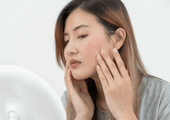
Essential and Easy Makeup Tips for Sensitive Skin
Living with sensitive skin conditions like eczema, psoriasis, and more is already not an easy feat. Throw in makeup t...
-

Raising Your Vibration: A Liht Organics Guide for Empowerment This International Women's Day
wp:paragraph As International Women's Day (IWD) approaches, it serves as a powerful reminder of the journey towards s...
-

The Beauty of Going Bare: Why Sleeping with Makeup is a No-No
Have you ever had one of those nights where you're too tired to clean off your makeup? You might believe, "Skipping...
-

Breast Cancer Awareness: Empower Your Beauty with Liht Organics Makeup
During October, we observe Breast Cancer Awareness Month as a way to unite and bring attention to breast cancer whil...
-

The Hidden Dangers of Carmine in Makeup Colorants: Embracing Healthier and Vegan Options
Makeup has become an integral part of our daily routines, allowing us to express our unique beauty. However, as we pr...
-

How can I ensure that my makeup products are organic and won't harm my skin?
When it comes to makeup, it’s important to be mindful of what you’re putting on your skin. With so many products on t...
-

[FEATURE] HONEYCOMBERS – BEST BEAUTY BUYS IN JULY
by Nicole NithiyahWhat’s hot in our beauty hit list: Honest thoughts and top beauty stories we’re swooning over. As w...
-

Liht Organics Introduces Exclusive Gift Sets: Enhance Your Beauty This Festive Season!
As the holiday season approaches and the year draws to a close, Liht Organics is thrilled to present two enchanting g...
-

Get Spooktacular with the Best Halloween Makeup Ideas using Liht Organics' All-Natural, Vegan, and Cruelty-Free Cosmetics!
With Halloween just around the corner, it’s time to let your creativity shine and transform yourself into a spooky,...
-

Celebrating World Animal Day with Liht Organics: Embracing Natural Cruelty-Free Makeup
wp:paragraph As we observe World Animal Day, the team at Liht Organics takes great pride in honoring our pledge to...
-

Reasons Why You Should Choose Cruelty-Free Cosmetics Instead!
With increasing exposés unveiling the ugly truth behind animal testing that goes on in the beauty industry, it is lit...
-

Celebrate Singles Day with Makeup That Empowers – 22% Off at LIHT Organics!
This Singles Day, treat yourself to beauty that goes beyond skin-deep. At LIHT Organics, we believe makeup is about s...
-

Preparing for the Cozy Beauty of Autumn: A Preview of Your Fall Look
As we bid farewell to the warm, sun-kissed days of summer, it’s never too early to start dreaming about the enchantin...

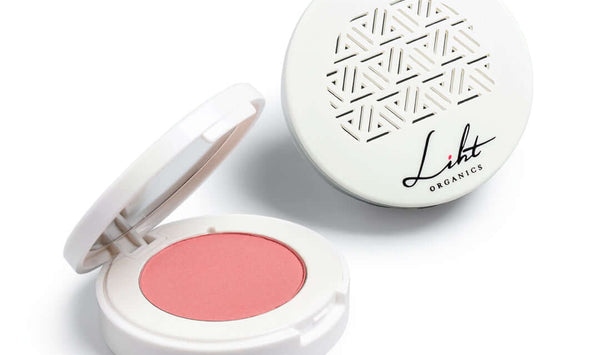
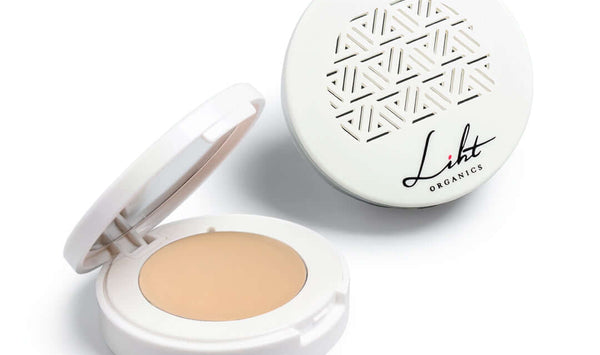
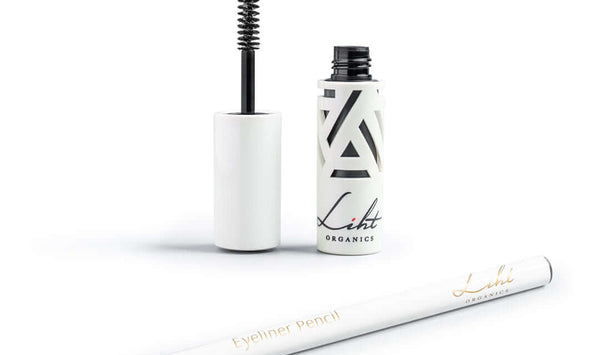
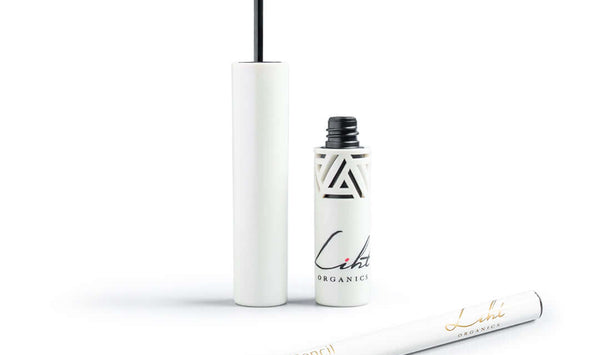
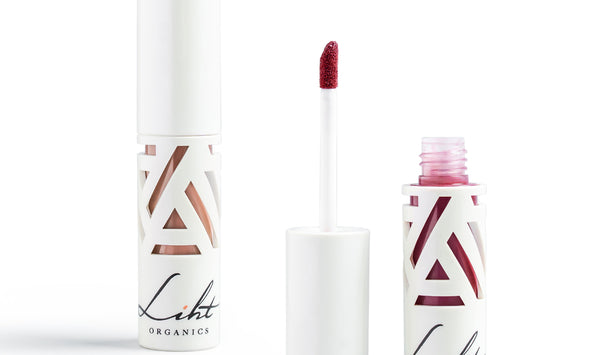
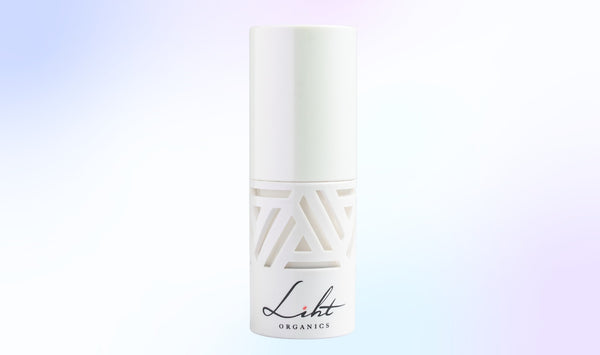

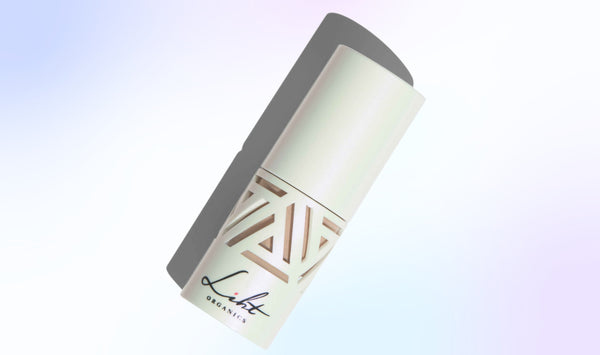
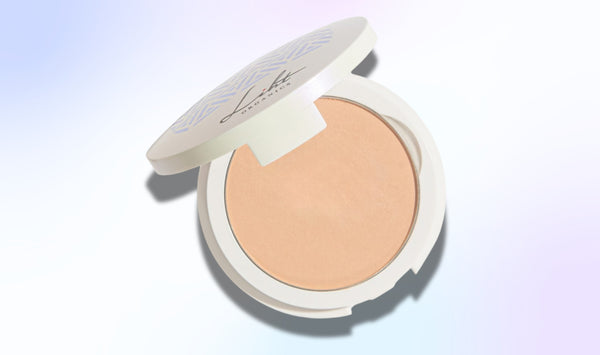
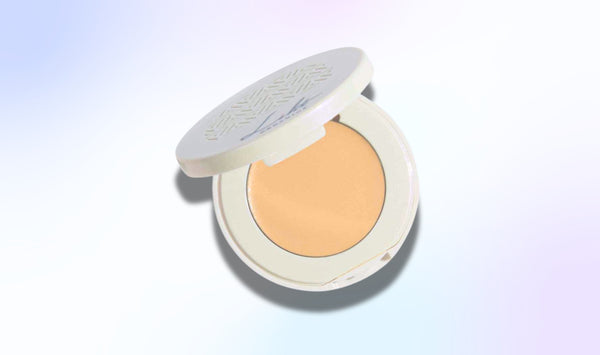
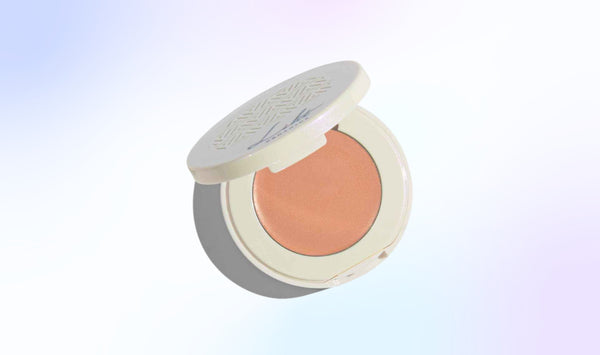
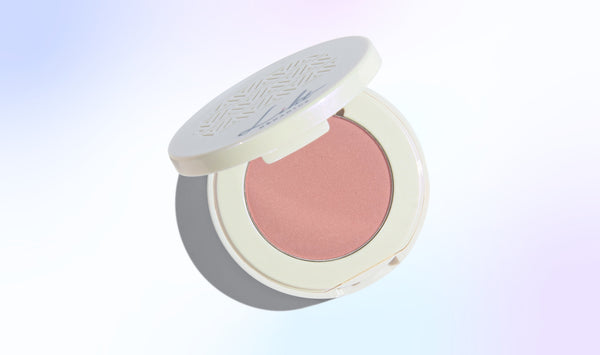
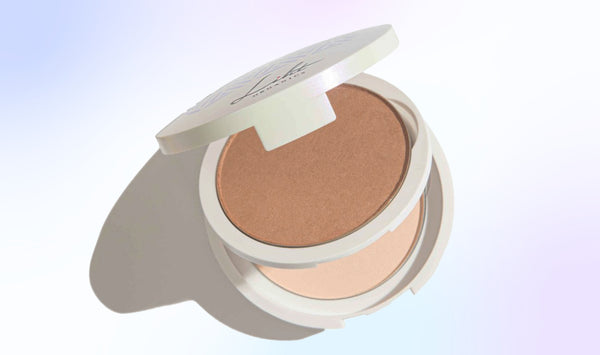
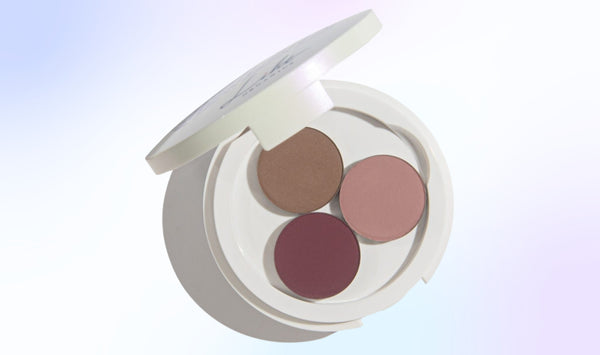
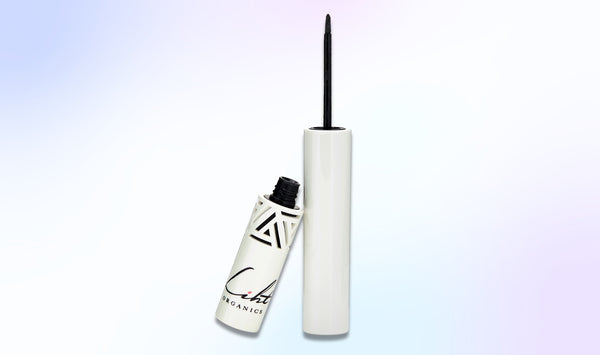
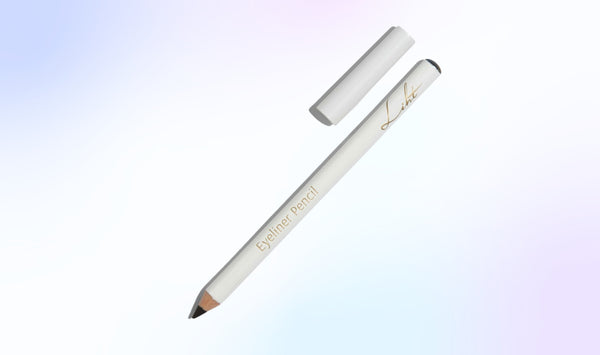
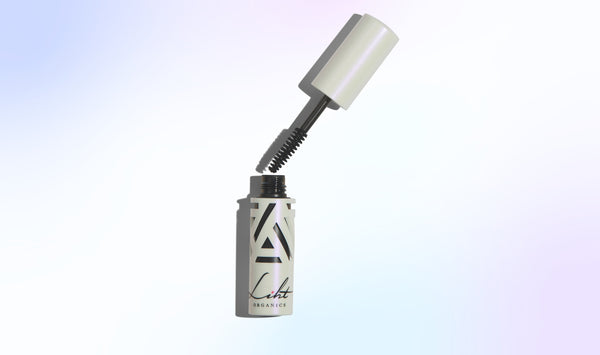
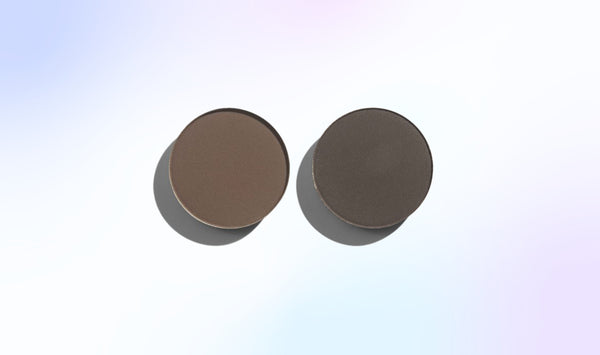
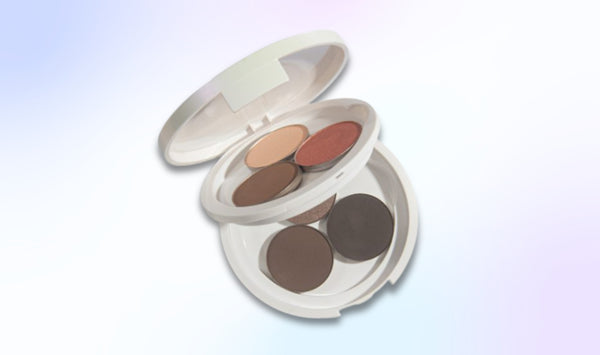
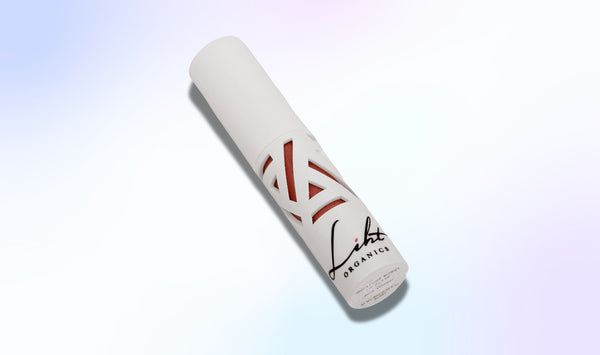
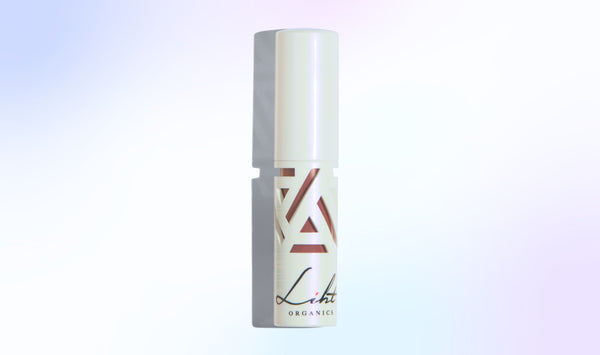
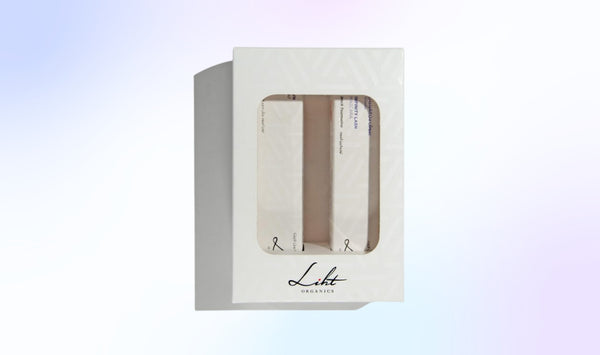
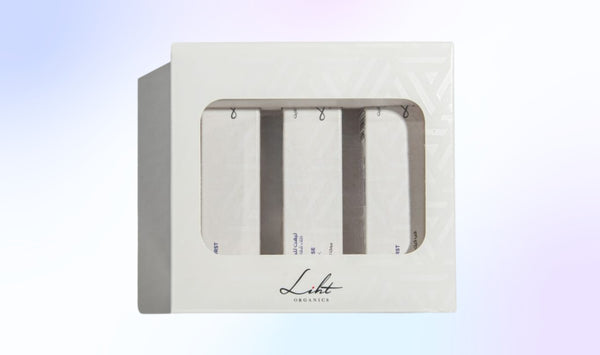


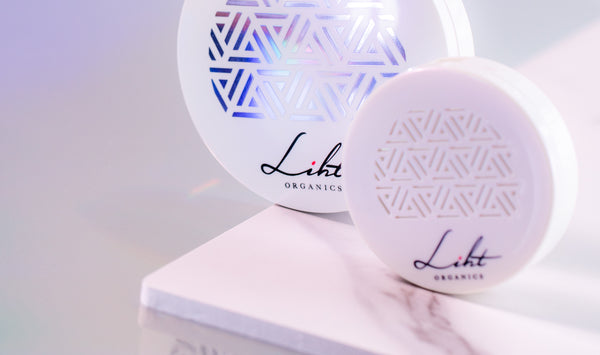
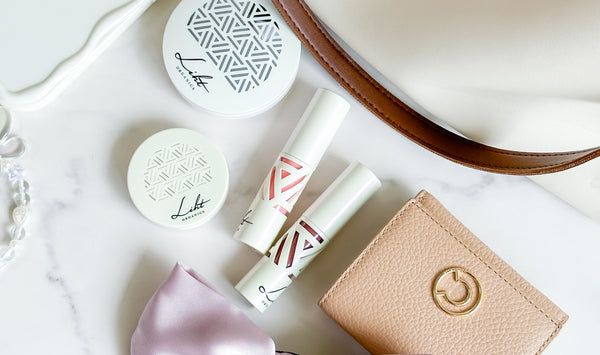
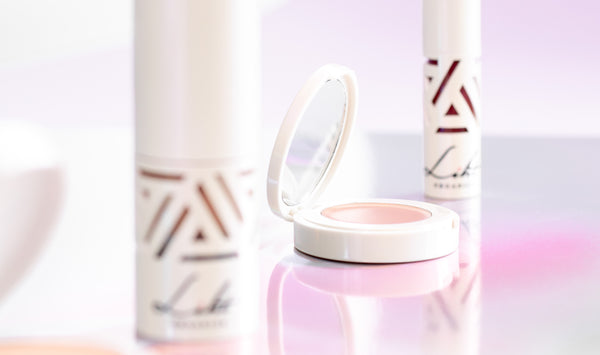




![[FEATURE] Liht Organics to debut at TFWA Asia Pacific show](http://lihtorganics.com/cdn/shop/articles/1_1.png?v=1759328400&width=170)
![[FEATURE] The Singapore-based organic makeup brand is a first-time exhibitor at this year’s TFWA Asia Pacific Exhibition in Singapore in May 2025](http://lihtorganics.com/cdn/shop/articles/2_1.png?v=1759328386&width=170)
![[FEATURE] Travel Retail Awards 2025 finalists - Best Make-up Product Color-Intense Liquid Lipstick – Liht Organics](http://lihtorganics.com/cdn/shop/articles/4_e2f54f0f-fcd1-46e7-9990-fc9d29e35131.png?v=1759328382&width=170)
![[FEATURE] Liht Organics targets expansion in travel retail](http://lihtorganics.com/cdn/shop/articles/3_1.png?v=1759328346&width=170)
































































